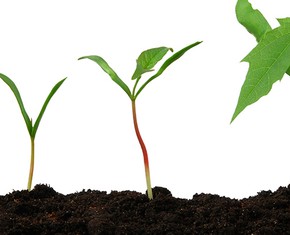The views expressed in our content reflect individual perspectives and do not represent the authoritative views of the Baha'i Faith.
The great philosopher Aristotle believed that human beings should act the way they want to be.
Achieving a virtuous and potentially happy character, Aristotle wrote, requires a first stage of practicing virtuous acts, which would lead to a later stage of actually becoming a virtuous person.
Some people summarize this philosophy, which survives to this day, as “Fake it ‘til you make it,” or “Act as if…” On the surface, it sounds reasonable, right? If you don’t feel something right away, act like you do, and sooner or later you’ll actually feel it. That corrupted version of Aristotle, which doesn’t really conform with his original philosophy at all, often troubles spiritual seekers — and it should.
Every seeker of truth naturally wants to stay as far away from hypocrisy as possible. Why would you consciously look for truth in life, and then commit yourself to a feeling or a behavior that isn’t completely true itself? This question brings us to number eight on our list of Nine Mistakes Spiritual Seekers Make – Fake it ‘til you feel it.
8. Pretending/Fake it ‘til you feel it.
 A seemingly wise and spiritual lady once told me that if I didn’t feel right about a particular belief, I should just “fake it ‘til you feel it.” It actually seemed logical at the time. But I gradually learned that spiritual reality will not countenance pretending. Either you get something out of your spiritual practice or you don’t, but pretending like you do is the worst hypocrisy. In fact, that’s the whole point of genuine spiritual search – to find truth. That means spiritual seekers don’t pretend.
A seemingly wise and spiritual lady once told me that if I didn’t feel right about a particular belief, I should just “fake it ‘til you feel it.” It actually seemed logical at the time. But I gradually learned that spiritual reality will not countenance pretending. Either you get something out of your spiritual practice or you don’t, but pretending like you do is the worst hypocrisy. In fact, that’s the whole point of genuine spiritual search – to find truth. That means spiritual seekers don’t pretend.
But we all have traits, characteristics and human virtues we would like to develop, don’t we? Yes, of course we do – which means we try to work on our inner character consistently and diligently. If I find, for example, that I’ve been unkind, and determine that I need to work on developing a greater level of kindness toward others, what are my choices? Do I pretend to be and feel kind the next time an opportunity presents itself? Or do I pray and meditate about developing that virtue; and then try harder to exemplify it?
The distinction may be subtle, but the outcome is vastly different. If I “fake” the feelings of kindness, I’m doing myself and others a grave disservice by being hypocritical. My own emotions and inner ethical compass will recognize that disservice, and eventually they’ll rebel. But if I actually work hard spiritually to effect an inner change in my own outlook that’s driven by love and caring, then the outcome changes into something motivated by pure intentions. In that way, we can reach for loftiness of purpose and purity of motive:
Man must be lofty in endeavor. He must seek to become heavenly and spiritual, to find the pathway to the threshold of God and become acceptable in the sight of God. This is eternal glory — to be near to God. This is eternal sovereignty — to be imbued with the virtues of the human world.…
Little reflection, little admonition is necessary for us to realize the purpose of our creation. What a heavenly potentiality God has deposited within us! What a power God has given our spirits! He has endowed us with a power to penetrate the realities of things; but we must be self-abnegating, we must have pure spirits, pure intentions, and strive with heart and soul while in the human world to attain everlasting glory. – Abdu’l-Baha, The Promulgation of Universal Peace, pp. 186-187.
 This question really comes down to one reality – what’s the purpose of a spiritual search? The Baha’i writings have a clear and consistent answer: to find the truth, because the truth will set us free:
This question really comes down to one reality – what’s the purpose of a spiritual search? The Baha’i writings have a clear and consistent answer: to find the truth, because the truth will set us free:
God has created us, one and all — why do we act in opposition to His wishes, when we are all His children, and love the same Father? All these divisions we see on all sides, all these disputes and opposition, are caused because men cling to ritual and outward observances, and forget the simple, underlying truth. It is the outward practices of religion that are so different, and it is they that cause disputes and enmity — while the reality is always the same, and one. The Reality is the Truth, and truth has no division. Truth is God’s guidance, it is the light of the world, it is love, it is mercy. These attributes of truth are also human virtues inspired by the Holy Spirit.
So let us one and all hold fast to truth, and we shall be free indeed! – Abdu’l-Baha, Paris Talks, pp. 120-121.
















Comments
Sign in or create an account
Continue with Googleor